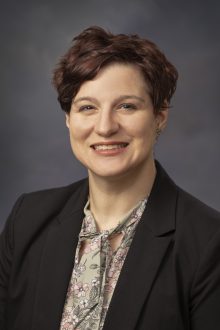

October 24, 2022 | By Mallory Yelenich-Huss, MD
October is breast cancer awareness month, and while much of our attention is focused on getting women screened for breast cancer, it’s also important to remember the advances in treatment options available to patients today.
Once I knew that breast cancer would be a focus area for me, I decided to pursue a fellowship in breast surgical oncology. So, for an entire year, I rotated through different allied fields in the Baylor University Medical Center’s Breast Surgical Oncology Fellowship, which is a fully accredited Society of Surgical Oncology approved breast training program. I learned about the multi-disciplinary areas of medical oncology, radiation oncology, physical therapy, palliative care, and radiology, including how all of these fields work together to make a plan for breast cancer patients.
I gained experience with national clinical trials, evidence-based medicine, and the treatment of advanced surgical disease. I also participated in surgical innovation and research and learned about ultrasound, high-volume operative experiences, and breast cancer survivorship. This gave me an all-encompassing view of what breast cancer care should look like.
As a result, I have a much better understanding of how to work with the entire breast oncology team to manage breast disease, high-risk screening, risk-calculation, and medical genetics. Breast cancer patients who come to Specialists in General Surgery can receive a wide array of diagnostic and treatment options, including reconstructive surgeries, nipple sparing mastectomies, scar hiding, lymphedema prevention surgery, intraoperative radiation therapy, and oncoplastic surgery. I put together a robust, strategic plan for each patient’s treatment and recovery because I understand how the different disciplines work together and can personalize the care each patient needs.
Deciding to pursue a Breast Surgical Oncology Fellowship was one of the best medical decisions I’ve made, and I am honored to put what I learned to work for Specialist in General Surgery breast disease patients.